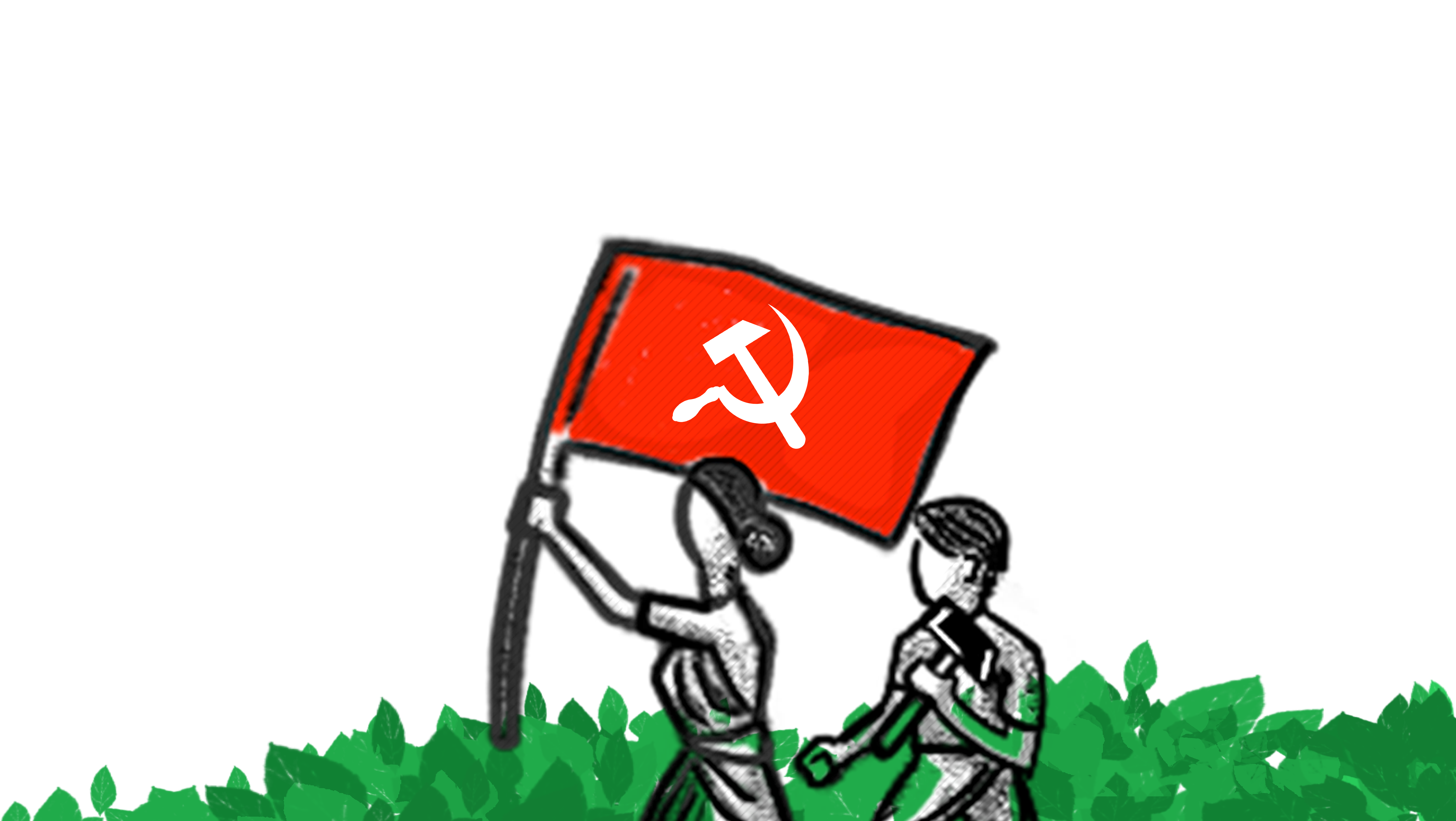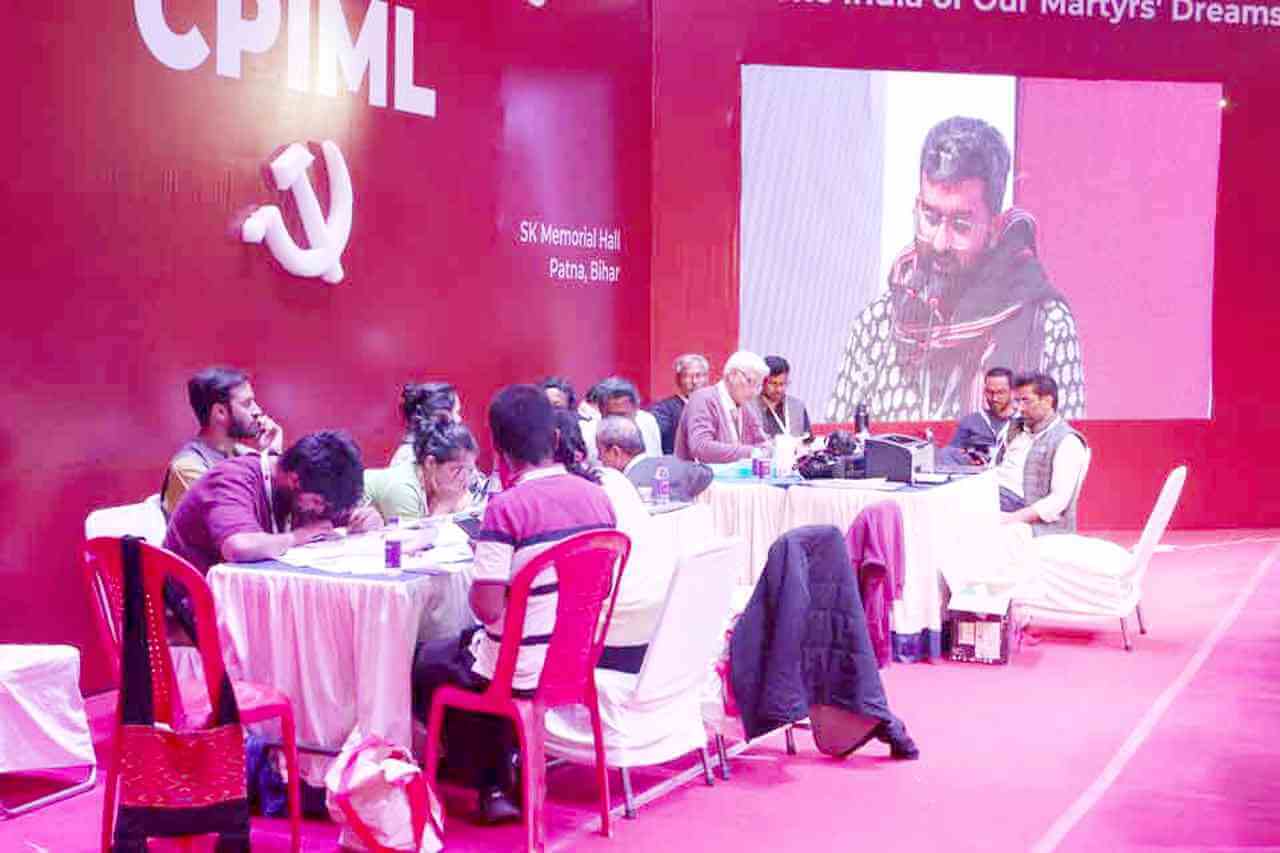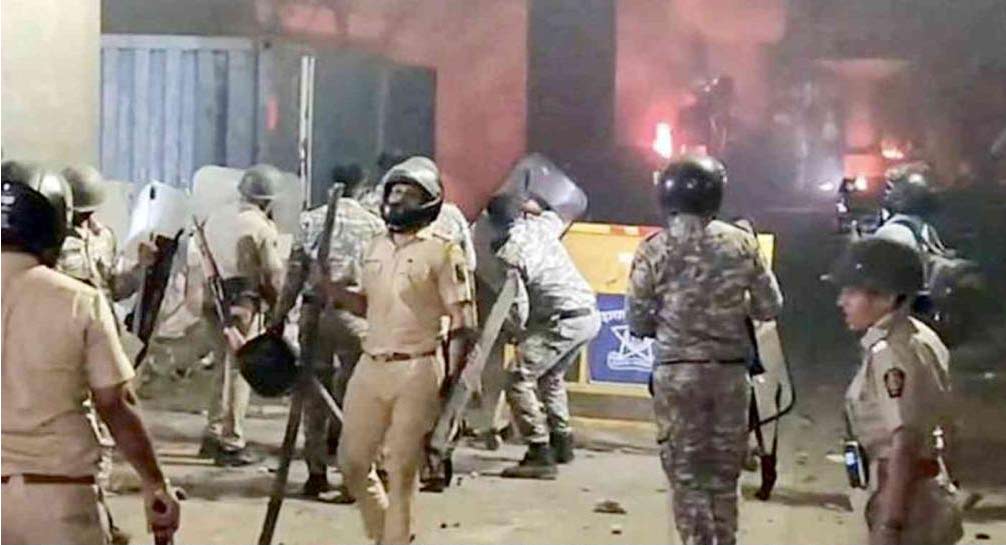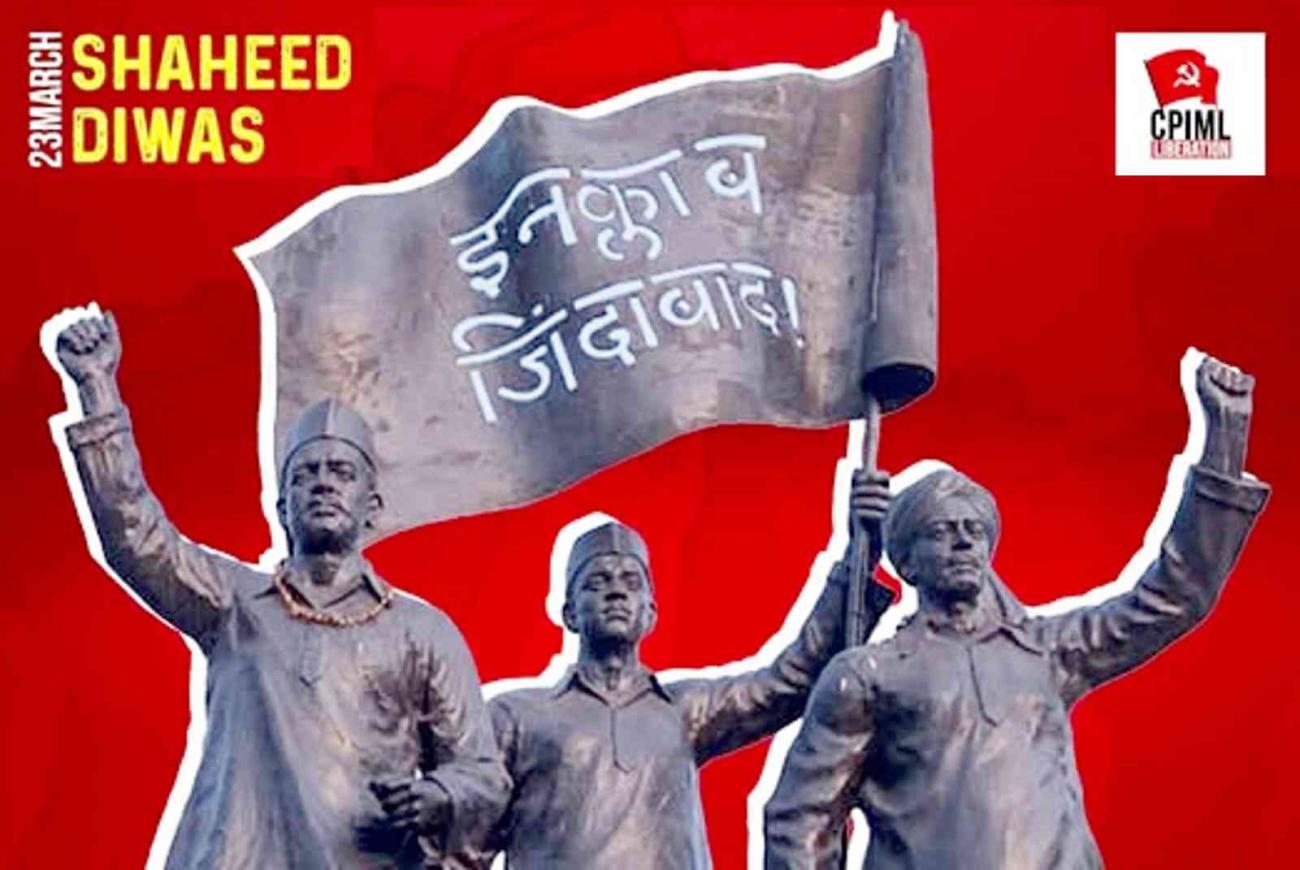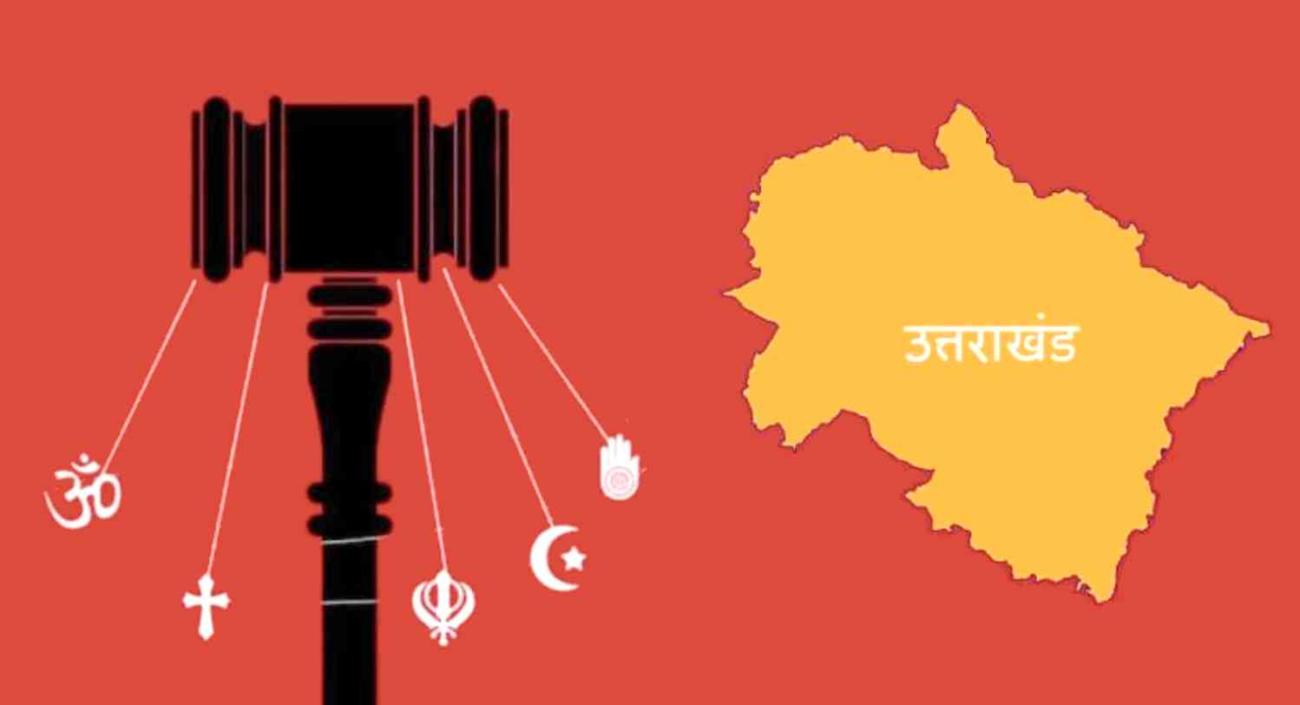It is in this context that the multilingual context of CPI (ML)’s 11th Party Congress held at Patna offers a glimpse of hopeful possibilities. With delegates coming from different corners of the country covering the far north, south, west and east- the linguistic landscape of the Congress was indeed as diverse as it could be. In a short walk from the venue of the meeting to the venue of breakfast, lunch and dinner, one could sample not only words and phrases in multiple languages but also a remarkable attempt by all to try and ‘make sense’ of what was being said than argue for an attempt to impose any one or few languages on all. As interactions with several comrades revealed that it was while dialoguing and working on ground with comrades across states that many had learnt more languages and also how they felt that knowing the languages of the people helped them understand people’s issues better. In fact, over the years I have personally witnessed the fondness with which comrades outside the state of West Bengal remember Com. D.P. Bakshi (Pranab da), Com. Swapan Mukherjee, Com. B.B. Pandey and Com. Jayant Ganguly for many many of their attributes, a significant one among which was their motivation and zeal to connect with people through people’s languages, which pushed them to learn and speak fluently various other languages including several tribal languages of Jharkhand, Assam, Odisha and other regional languages besides their own home languages.
While in earlier Party Congresses also the attempt had always been to encourage delegates to speak in their own languages with simultaneous English and Hindi translations from the stage, the 11th Party Congress went a step ahead in the right direction with its attempt to offer not just Hindi and English translations of speeches but explore ways of ensuring simultaneous translations in as many languages as possible. This attempt was based on the recognition that translations in Hindi and English also do not include all. The intensely hierarchical and divisive schooling system in India has ensured that English and Hindi, especially their standardised and ‘sanitised’ versions remain the languages of the elite few. Further, the reluctant and half-hearted implementation of the three language formula in Central and North India, that went against the spirit of the three-language formula suggested in the Kothari commission report and the education policies thereafter, did not facilitate learning of any non-North Indian ‘Modern Indian language’ by those residing in these regions. The challenges of non-comprehension posed by simultaneous presence of multiple languages is due to refusal of governments to pay sufficient attention to the significance of multilingual education. Responding to this challenge, an important part of the Congress was setting up a multi-level translation team which included a core team comprising of delegates who would first do immediate transcriptions of Hindi and English speeches, while they were being delivered on the stage and then a complete translation from Hindi to English, English to Hindi, and any other language to Hindi/English. These Hindi and English transcripts were then immediately sent to different state level teams for second round translation to the different regional languages which were then shared with members of the respective language groups through message apps. This allowed delegates who were not comfortable with either Hindi or English to receive the complete versions of what was being said and not just the gist or summaries, which created possibilities for a more involved participation in the debates. Further, the awareness that irrespective of whichever language they speak in, the complete English and Hindi translations of their speech would also be similarly shared with others for further translations encouraged them to speak comfortably and passionately in their own languages (language of their political experience and struggles) than feel pushed to speak in Hindi or English. For many among the delegates this was a unique opportunity to hear multiple languages, their translations and also reflect on the fluidity and interactions among languages themselves. Several linguistic researchers over many decades have highlighted that exposure to and engagement with multiple languages allow for better meta cognitive development. The cognitive task of inferring the grammatical and phonetic structures, and of analysing and comparing patterns, similarities, distinctions, etc. all add to one’s ability for complex cognitive and meta cognitive tasks. Equally importantly, this engagement allows one the opportunity to view the world from multiple contextual lenses, enabling possibilities for more empathetic and attentive interactions. This could be seen and felt during the Congress as one could also hear the languages as they are shaped by and also actively shape struggles and movements. The sharing of simultaneous transcripts of original speeches and translations on any platform also has implications for the process of authentic documentation and revisiting for a better understanding. It facilitates the dialogues to continue and remain informed.
The fact that this could be attempted with minimal resources requiring only connectivity and a phone device, and of course a space that acknowledges and values multilingual dialogues, also makes me hopeful as a pedagogue who is often confronted with questions focussing on ‘practicability’ and ‘feasibility’, a term that one disturbingly finds too frequently in policy documents. It makes me hopeful when I witness spaces and people who do not treat practicability as an ethical principle equal to the principles of equality and social justice. There is a lot that goes into realising the dream of a better world and to make this practicable is what the task is all about!

